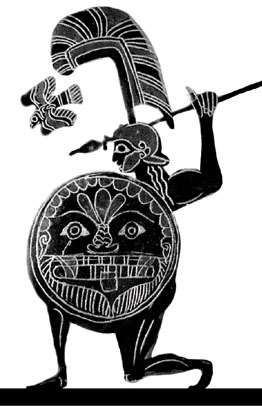 |
 >
Roman Life >
Roman Life
Ludi
- Public games / shows
Given at the expense of the state.
Ludi scaenici – dramatic entertainments in theater
Munera gladiatoria – combats between gladiators
Ludi circenses – shows in circus
Races & gladiators more popular than plays – more exciting
Exploited for political purposes – By end of Republic chief pleasure of lower classes
All business stopped when given, citizen took holiday – by end of Republic, 66 in a year.
- In Marcus Aurelius reign, 135 days were holidays
Private games given by private citizens, not official holidays.
Comedies (only lively ones popular), tragedies (not popular), {pantomimes, farces}- interludes and afterpieces – most popular with public.
Plautus and Terrence – only complete comedies – adapted from Greek, about Greek life/costume
More = comic operas than true comedies, much music, singing, dancing. (200 – 160 BC)
Daytime only – no lighting. @1st, after noon meal - by Plautus¡¯ time: morning. Comedies: 2 hrs.
Plays given only when games were given. No commercial theaters.
Supervised by state officials in charge of games – contracted for production with manager, eg. Famous actor with a troupe. All actors slaves.
Play made w/ least # of actors, 2 or more parts assigned to 1 actor. Sometimes rich person had own troupe.
Inexpensive costumes rep. ordinary Greek dress. Paint face (esp. women¡¯s parts). Later: masks
Wigs – gray (old men), black (young men), red (slaves). Props/costume furnished by manager.
If performance successful, manager give dinner to actors.
200 – 160 BC, stage = crude temp. platform, much wider than deep, at foot of hill/grass-covered slope. No curtains, shiftable scenery, sounding board, lighting or way to show interior.
For comedy, stage always represent street: entrance at each end, 2 or 3 doors of houses at back.
All action/conversation was placed on the ¡°street¡±. An altar on stage – remind of religious origin.
Scene change possible in later theather – but not used too much.
Spectators on slope, sit/recline, bring stools. Confusion/noise, better shows drew audience away.
145 BC – wooden theater w/ Greek style seats built. Senate removed it after games over.
Became custom to build temp. theater, with separate section of seats for senators.
55 BC – Pompey - 1st permanent stone theater - Campus Martius. Based on Mytilene, Lesbos.
10K spectators -> Pliny the Elder says 40K.
Greek vs. Pompey¡¯s Theater– Made out of side of hill | On level ground (magnificent exterior)
Orchestra – dancing place, circular space in front of stage, choruses / actors perform.
Romans didn¡¯t need this, had no chorus -> semicircle in front of stage.
Seats nearest orchestra -> Senators (Rome), City Officials/Council members (Towns).
Senators reached seats by passageways under seats at right and left of stage.
Upper rows for everyone else, no reservations.
Access to upper tiers by way of passages constructed under seats/stairs.
Colonnades above highest seats for shelter in rain.
Best seats = theater boxes = over vaulted passageway. One side reserved for Emperor or officials who superintended games, the other side for the Vestals. Reached by private stairs on stage side.
Stage – 120 or 180 feet wide – asides/dialog unheard on other side, actor take long time to cross.
Connected to auditorium by seats over vaulted passages to orchestra.
Curtain - raised from bottom. Had slot to drop into.
13 BC – 2 other theaters made. Honour nephew of Augustus: Marcellus built - 10-14K spectators
- Theater of Balbus – 7700 spectators.
New theaters = special effects = Cicero says Pompey put cavalry, bodies of infantry, mules w/ spoils of war, 3000 bowls for mixing wine.
Proscaenium – back of the stage
Scaena – where actors perform
Cavea – section with seats for spectators
First 4 rows – senators
Cunei – wedges, seats divided into sections by passageways
Behind 1st 4 rows, 5 passageways divide seats into 6 sections. Seats above are divided by 11 aisles into 12 sections.
Vela – awnings – spread from tall masts.
Portico – open square surrounded by colonnades – was seen in theater @ Ostia and Minturnae.
|

